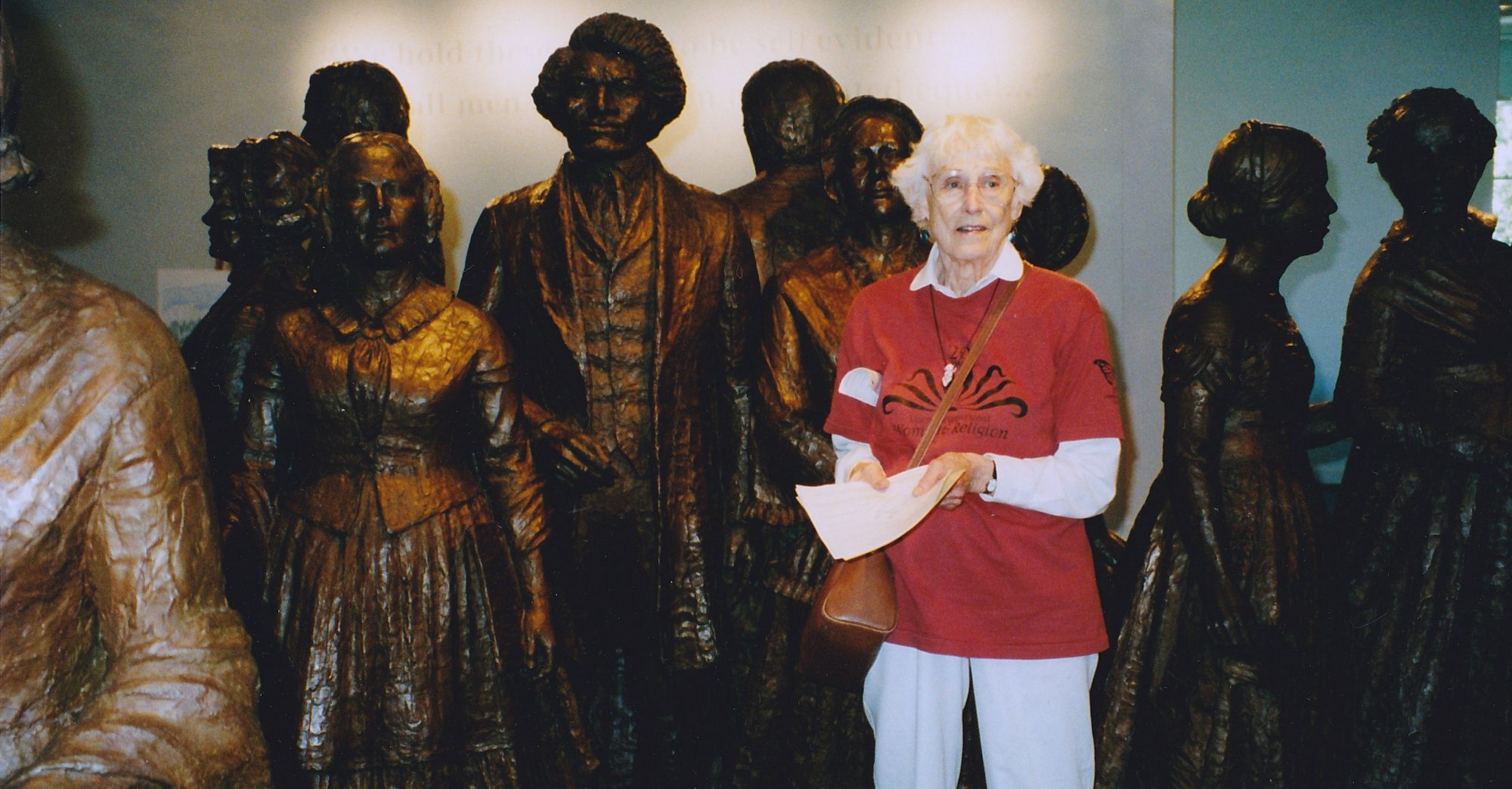Lucile felt that TOP, both in format and content, was a radical departure from what had been available to women in religous settings. These excerpts in her own words describ this experience and what it meant to her.
A personal note written by Lucile, not dated or attributed:
Lucile says:
“Click. Click. It was in the mid 1970’s. Consciousness raising groups were springing up all around. One met in my home. “Click” was the term that expressed an “a-ha” insight and I was clicking a lot. My thought world was changing, but I couldn’t then see the larger picture — that with each “click” one more link in my developing feminist consciousness had fallen into place. I was giving birth to myself and a new understanding of what I had assumed was reality. Stunned by new concepts, I became obsessed with changing my own perspective. This meant unlearning a lifetime of socialization based on patriarchal assumptions, i.e. the system of institutionalized male dominance not only over wife and children in the family but over all of creation. Since no course of unlearning patriarchy was available in the credentialing institutions, I devised my own home study course. I read everything I could find about patriarchy as a global consciousness. My specific interest centered on determining how major religions sanctified a prime feature of patriarchy, namely male dominance and female subordination. It was in this cultural context that I, at age 66, learned about and began attending the Theological Opportunities Program at Harvard Divinity School.
“TOP proved to be a one-of-a-kind gathering of dynamic women, primarily lay women, many intentionally seeking new insights. I found myself continuing with enthusiastic associates what I had formerly tried to do on my own. Amazingly, the vehicle for change became sharing our lifetime stories as they had been lived in a milieu where we had always been assumed to be subordinate to men. The result for me has been revolutionary, not only in my point of view but in my actions as well. I recall impetuously standing on my head at lunchtime one day in Rockefeller Hall. I had become even more acutely aware of the role religions play in undergirding patriarchy and I felt the need to tum the whole theological school upside down. I stopped celebrating religious holidays and celebrated solstice instead of Christmas. A new name took me. Lucile K. Schuck became Lucile S. Longview. Six years later I made it legal.
“In this time of the second feminist movement when major emphasis has been on the liberation of women from subordination, TOPS, for me, has been an oasis for radical feminists and the work of deconstructing patriarchy and the religion that sanctifies male dominance. It has also been much more, in a social sense: a bonding of like-minded women into a supportive sisterhood community.”
From her presentation Claiming Rage as a Part of Courage presented at the Joseph Priestley District meeting, New York, March 31, 1984
Lucile says:
“For seven years I have been a member of the Theological Opportunity Program of Harvard Divinity School. This religiously oriented group brings together women from congregations of many faiths for two lecture series a year. The lectures in each series are in response to questions which we, predominantly lay women, have formulated after hours of discussion about our individual and common theological concerns.
“That is a switch! Instead of being compliant laity and listening to Professional Theologians tell us what they think we should know we invite the credentialed to speak to underlying assumptions they never thought to question such as “Female Blood Defiles, Male Blood Saves.”
“In addition to the two lecture series and our extended discussions before Identifying our questions an ever increasing number of us meet regularly within the walls of Harvard Divinity School to explore ever more deeply the ways in which the images in the Scriptures as well as practices in our particular churches sanction and promote the subtle conditioning which cause us all, men and women alike, to consider women subordinate to men.”
From: Lucile’s presentation on Feminism in the Unitarian Universalist Association to the Panel for Theological Education September 29, 1987
Lucile says:
“I want you to know why I have valued sharing with other laywomen in the Theological Opportunities Program (TOP) at Harvard Divinity school. There we have examined traditional religious concepts and seen time and time again how the myths and stories of religious heritage have diminished women, causing us to dislike and deprecate ourselves.
“We the laywomen have been doing the work which our denomination embraced by adopting the Women and Religion Resolution.”
